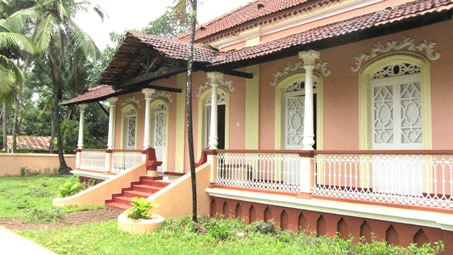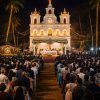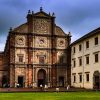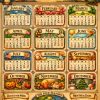Goa is abuzz with excitement as vintage bike and car owners, users, collectors and fans are decking […]

UNIQUE IDENTITY OF GOA!BY ARVIND PINTO
Heritage, Sep 18- Sep 24, 2021 September 17, 2021IDENTITY: In a rapidly urbanizing Goa there are fewer places which retain traditional and cultural ambiance, as reflected in villages like Aldona and Saligao where one may still see many old world Portuguese houses and estates.
By Arvind Pinto
In the context of the proposal for the Legislative Assembly to pass a bill on People of Goan Origin (POGO), the controversy over the unique culture of Goa has revived. The unique culture of Goa, as distinct from other parts of India, because of the Latin influence and its unique location. But with more and more outsiders, both high net worth individuals as also middle class and poor settlers in Goa, the distinction between Goa and the rest of India is vanishing.
IN the widening debate in India of the need for a monocratic culture, it would be interesting to look at the unique Goan culture and dwell on the several strands of plurality that make for a unique Goan heritage. This is all the more important with the forthcoming elections, there is always a subtle debate in Goa on the cultural contours of the State.
Goa, like many of our other states, has a unique culture blending with the influence of 450 years of Portuguese rule. This little state on the Western part of the sub-continent is blessed with special cultural combination, the result of native Goenkars intermingling with the Portuguese who ruled Goa from 1510 till Liberation in 1960. Today’s blend of Goan life and times have evolved over centuries and it is a distinct personality synthesized between European and native Indian fusions.
Before the Portuguese who came in the early 16th century, Goa was ruled by the Kadamba dynasty, succeeded by the Vijaynagara Empire, followed by the Bahmani and Bijapur Sultanates. While heritage monuments of these kingdoms still exist, there are not much cultural traces evident in Goa of this equally historical times. Goa has always lived in its villages which were to a large extent self-sufficient for everything was rooted in a rustic agricultural ethos.
GAUNKARI SYSTEM
A SYSTEM called Gaunkari evolved whereby villages were self-governed and the common lands owned by the community. Each village had its local deity and religious and cultural activities were centered around the temple. Goa, however, was not territorial defined, since it belonged to kingdom that were situated on the Deccan plateau. The ruling dispensation did not affect community activities at village level.
During the rule of the various dynasties, the agricultural communities were uniformly Hindu and much of the cultural strands were woven around practices of the temple. Despite the fact that the rule of the Sultanates was paramount for centuries, there were no major Islamic communities.
For political power was restricted to collection of taxes and suzerainty. Thus, Goa’s village life continued to be peaceful, despite the changing power structures. It was only with the advent of the Portuguese that Goa acquired a territorial identity. Alfonso de Albuquerque wrested Goa from Sultan Adil Shah in 1501 to make Ela or Old Goa his capital.
Subsequent conquests extended to the new territories that now make up the state of Goa. Portuguese takeover brought about a revolutionary change in the lives of the people. With Christianity as the driving force Portuguese laws brutal and cruel ensured that there was a total cultural and social upheaval in what came to be known then as Estado da India.
WITH RELIGIOUS CONVERSIONS
BUT with religious conversions came modern education in Portuguese, modern methods of governance, the language of governance was Portuguese and accordingly this became the language of the elite, the press and many of the cultural traditions of the mother country were imbibed and practiced.
While many of us today argue about whether such European colonization was good or bad, the limited exercise here is to show that what evolved over 450 years resulted in an amalgam of cultures western and eastern and resulted in today’s special Goan charms.
In an 1851 census the Catholic population in Goa was 66% as against the Hindu population of 35%. However, with the migration of many educated Catholics in search of employment in what was then the British Empire, the Catholic population has decreased and as per the 2020 census it is down to 25% — as against the Hindu population of 66% and Muslim population of 8%.
Goa’s unique harmonious blend has never resulted in any communal riots of the kind we have seen elsewhere in the country. It is an interesting aspect of Goan culture, that the ordinary people of the state think of themselves at native Goans first and Indians second. This is because of common experience and an identity defined by the language of Konkani and a shared history and heritage.
There are churches and temples in all Goan villages — an indication of the people’s deep religious beliefs, but the primary focus and concern is of being Goan. Unlike in certain parts of the country the people of Goa may be of different faith but they live in harmony.
GOAN SYNTHESIS
TALK to a Goan on the streets and he will tell you, “At Christmas my Hindu neighbors will come to my house and during Diwali I will go to their home.” In village Goa both communities visit each other and share their respective sweets. They share a common bond of being one people belonging to the same village and feeling Goan regardless of religious identity.
Sadly, over the last few decades, there has been a conscious political agenda to divide people on this peaceful state. Fundamental forces seek the polarization of a people by harking back on past history and so to promote divisiveness amongst Goans for the sake of gaining political power.
As Goa moves into election mode the political agenda will also grow. We can only hope that Goans see through the games of politicians in power and don’t fall into these political gambits to create resentment and hatred for one another. Wisdom is the need of the hour if Goa is to prosper, develop and grow meaningfully and fruitfully. This should be the touchstone and not the petty divisive games of certain vested interests!















